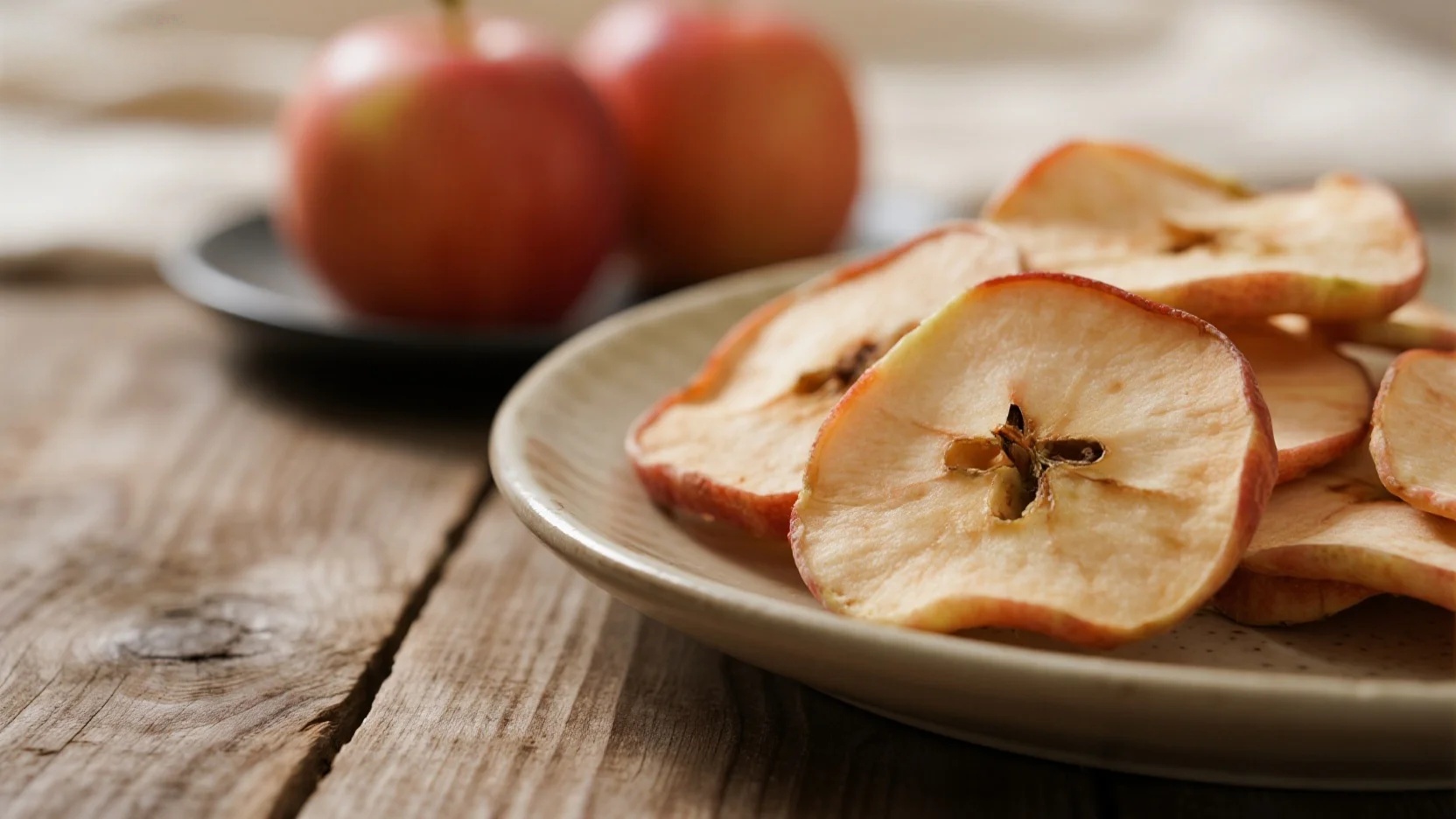Dried apples can be a nutritious snack, but like all foods, they come with both advantages and things to watch out for. Here’s a detailed breakdown to help you decide if they fit into your diet.
Health Benefits of Dried Apples
✅ Rich in Fiber
Dried apples retain most of the fiber found in fresh apples, which supports digestion and helps keep you full. A 100g serving can provide up to 75% of your daily fiber needs, depending on your diet.
✅ Packed with Antioxidants
They contain beneficial plant compounds like quercetin, catechins, and resveratrol, which have anti-inflammatory and heart-protective effects. Some studies suggest these antioxidants may even help reduce cancer risk.
✅ Supports Heart & Brain Health
The fiber and polyphenols in dried apples may help:
- •Lower LDL (“bad”) cholesterol
- •Improve blood circulation
- •Support cognitive function
✅ Low Glycemic Index (GI ~29)
Unlike sugary snacks, dried apples raise blood sugar more slowly, making them a better option for those managing glucose levels.
✅ Convenient & Nutrient-Dense
Dried apples are:
- •Portable – great for on-the-go snacking
- •Shelf-stable – last longer than fresh apples
- •Rich in minerals – including potassium and copper
Potential Downsides of Dried Apples
⚠️ High in Sugar & Calories
Drying removes water, concentrating natural sugars. For example:
- •100g fresh apple = ~10g sugar
- •100g dried apple = ~57g sugar
⚠️ Easy to Overeat
Because they’re smaller and less filling than fresh apples, it’s easy to consume multiple servings without realizing it, leading to excess sugar and calorie intake.
⚠️ May Contain Added Sugars or Preservatives
Some commercial brands add:
- •Extra sweeteners (e.g., cane sugar, corn syrup)
- •Sulfites (used as preservatives, which some people are sensitive to)
⚠️ Lower in Vitamin C
Heat processing reduces vitamin C content, so dried apples shouldn’t be relied on for this nutrient.
How to Enjoy Dried Apples Wisely
✔ Choose Unsweetened & Preservative-Free
Look for labels that say:
- •”No added sugar”
- •”Unsulfured” (if avoiding sulfites)
✔ Control Portions
A small handful (~30g) is a reasonable serving size.
✔ Pair with Protein or Healthy Fats
Combining dried apples with nuts, yogurt, or cheese helps balance blood sugar and keeps you full longer.
✔ Use in Recipes Instead of Eating Alone
Try adding them to:
- •Oatmeal or granola
- •Salads
- •Trail mix
Final Verdict: Are Dried Apples Healthy?
Yes—in moderation. They offer fiber, antioxidants, and minerals, but their high sugar content means portion control is key.
Best for:
- •Healthy snackers who track portions
- •Active individuals needing quick energy
- •Those looking for a shelf-stable fruit option
Use caution if:
- •You’re managing blood sugar
- •You tend to overeat dried fruit
- •You’re sensitive to sulfites
Would you like recommendations for the healthiest dried apple brands? Let me know! 🍏








